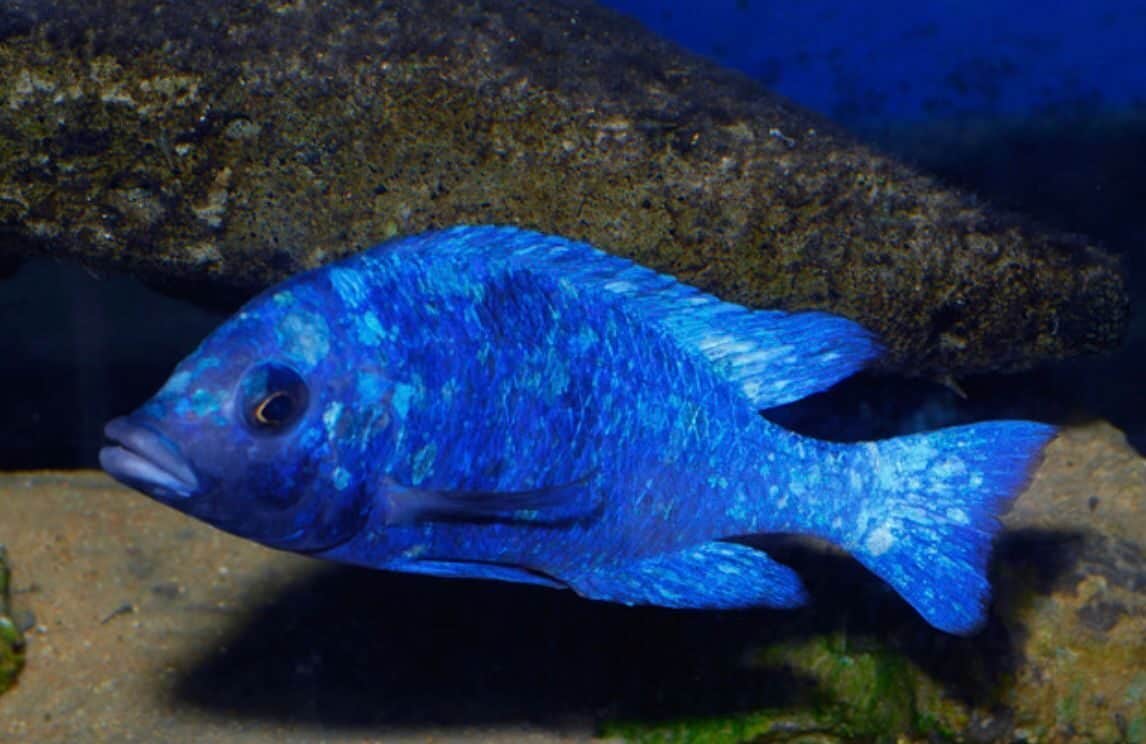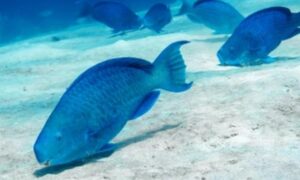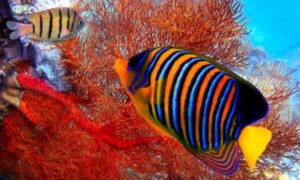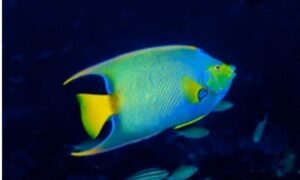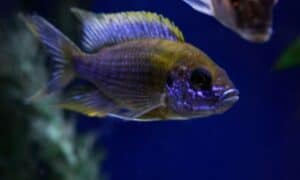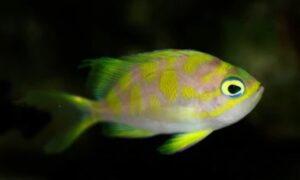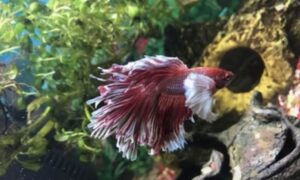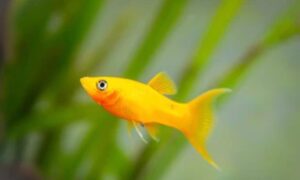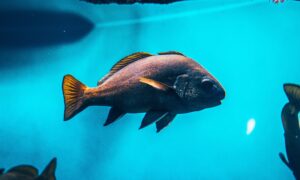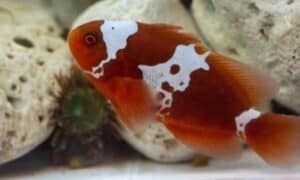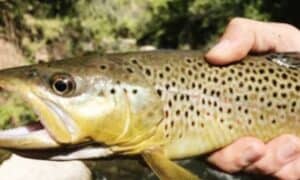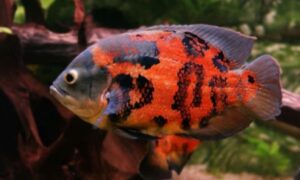Table of Contents

Origin of Mdoka
MDOKA white lips also known as Placidochromis phenochilus are very unique and special since both male and female species share the same coloring which is very rare in the world of cichlids. It’s very interesting how they have different growth time periods some grow really fast, while others grow really slow. It has also become progressively popular as aquarium fish nowadays.
Placidochromis phenochilus is basically a haplochromine fish. They originate from Lake Malawi where they are found in Malawi and Mozambique which is a country in east Africa. In Lake Malawi, they are often known as mdoka white lips.
The name Mdoka emerged from a local dialect that is spoken by people on the south shore of Lake Malawi.
Mdoka appearance
Placidochromis phenochilus is very similar to another species of fish which is native to Southern Africa. Both species share an almost indistinguishable body shape and colors. They have minor differences that make it easy to distinguish between them. The male and female mdoka are almost similar in appearance, though male mdoka looks a bit smaller than females. Females Mdoka will also develop red color around their jaws as they grow up, which distinguishes them from male Mdoka.
Assembling of tank
Since placidochromis phenochilus is a tranquil fish, so a comparatively sized tank with sufficient hiding places will work best for this fish. Mdoka live in hard water. Make sure to set your tank with a filtration system in order to keep the water clean and refill it with fresh water to keep mdoka atmosphere clean. Similarly like huge African cichlids, mdoka does best in warm climates.
Water parameters of fish tank
Water should be within a pH range of 7.2 – 8.0, a temperature of 79 – 82 degrees F (26-28 degrees C), and dKH = 10 – 12. Water clarity should be kept high and it should be hard water since they like swimming in hard water. Low water quality can cause health problems in mdoka. Change their water regularly, possibly if you are able to monitor your tap water with an aquarium test kit such as those offered by Aquarium Pharmaceuticals will be the best option for the health of mdoka. They are also cheap and are available at pet shops.
Mdoka white lips male/female
Males mdoka get white lips as they mature. Their size can grow up to 25 cm (10 inches) in length. Mdoka white lips can bear many water conditions and temperature variations. Though the tank should not be placed in direct sunlight, the water temperature can range between 25°C (77°F) up to 30°C (86°F). mdoka white lips can’t condone nitrate concentrations above 40 ppm, so it’s necessary to change their tank water regularly.
Lifespan of white lips mdoka
Mdoka has a life span of 12 years. They grow from just under an inch long and they weigh about 8 inches long and 3 ounces when mature. Male mdoka are smaller than females.
Placidochromis phenochilus food intake
Mdoka white lips eat frozen or live foods such as brine shrimp, bloodworms, or tubifex. Frozen foods are best and recommended, as they stay fresh longer. Tubifex is best among all because it can be stored at room temperature with less risk of expiring. Bloodworms are although high in protein but are likely to spoil or decay and should be used quickly or kept refrigerated in order to avoid it getting expired.
Predators
Mdoka is a small genus of fish that initially live in freshwater. They live in an aquatic ecosystem, so sometimes there is a risk of predation — especially if you own multiple mdoka. it’s necessary to know how you can secure your mdoka from other fish.
Health conditions of Placidochromis Phenochilus
Mdoka are basically hard fish and are meant to be a very nice addition to your tanks, but they can definitely have health issues. The most common problem occurring in them is Ichthyophthirius Multifiliis. It can be treated with salt or praziquantel.
Is mdoka good for home tanks?
Mdoka are known as very quiet and friendly fish. They can be kept in a home tank environment but you should get rid of it if there are any aggressive fish in it. Mdoka enjoy swimming around rocks and plants so your home tank should have them, and they will often hide behind them if they don’t feel secure.
Placidochromis phenochilus is a very gentle and calm fish by nature and this nature of them makes it easier to keep with other Haplochromis cichlids. Best way is to keep them in a family of 6 individuals since they are very social and like to play with similar fish like them . Overall mdoka is very likely to be a part of your home tanks

